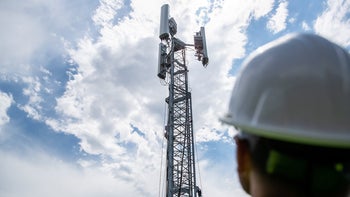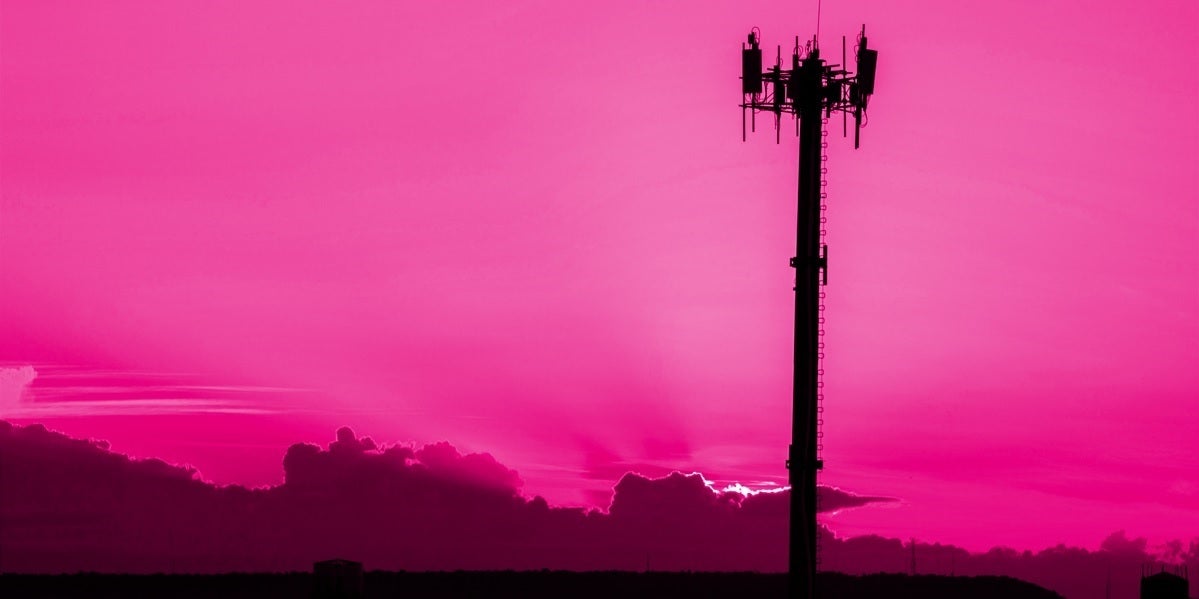Dish asks the FCC for permission to test low-band spectrum for its nationwide 5G network

Here's a fun fact boys and girls. While T-Mobile was the winner in the FCC's auction of 600MHz low-band spectrum back in 2017 after spending $8 billion, Dish Network was a close second. Dish spent $6.2 billion in the auction and while it owns plenty of 600MHz spectrum, it wants more. Low-band airwaves travel further and penetrate structures better than mid or high-band signals, although low-band does not deliver the zippy 5G download data speeds you would like to see.
Dish Network seeks FCC permission to test 600MHz spectrum in two cities for 5G use
Still, low-band spectrum is what allows the carriers in the U.S. to advertise nationwide 5G service. According to LightReading, Dish has asked the FCC for approval to run some 5G tests in Denver and Las Vegas using the 600MHz band and Carrier Aggregation. The latter is a method used to increase the capacity and peak rates of 5G coverage by aggregating two multiple blocks of frequencies.

Dish wants to test 5G Carrier Aggregation using 600MHz spectrum in two cities
In a letter to the FCC, Dish said that it holds contiguous blocks of paired 5x5 MHz licenses in the 600MHz F and G blocks in both Denver and Las Vegas. Dish told the regulatory agency that it might need more blocks of low-band spectrum in the future to meet customer demand. As a result, the company stated that "When and if additional 600MHz spectrum becomes available, either when the commission auctions unassigned spectrum or through future partnerships, Dish plans to use carrier aggregation at the market level to combine multiple 600MHz assets to add capacity and improve data throughput speeds."
In the same letter, Dish tells the FCC that it would like permission to use 600MHz spectrum owned by Bluewater Wireless for the testing in Denver and Las Vegas. "Dish needs to conduct CA [carrier aggregation] testing in a real-world environment using the specific radios and handsets developed by its vendors for its 5G broadband network," Dish wrote. "And to test 600MHz CA, Dish requires non-contiguous spectrum blocks. Bluewater's A Block licenses in Denver and Las Vegas meet this need."
The report says that Dish plans on building a nationwide 5G network using 600MHz, AWS-4, 700MHz E Block, AWS H Block, and 800MHz. The company faces a deadline with some real-life consequences. To help the T-Mobile acquisition of Sprint get approved by the FCC and the Justice Department, Dish agreed to become the "fourth nationwide facilities-based network competitor" replacing Sprint. Once those regulatory agencies were satisfied that Dish would eventually replace Sprint, they greenlit the T-Mobile-Sprint merger.
Dish faces a deadline that requires it to cover 70% of the U.S. with 5G service by June 2023
Dish purchased the pre-paid operations belonging to Sprint including Boost Mobile, 9.3 million customers, 400 employees, and 7,500 retail stores. Part of the deal with the FCC requires Dish to cover 70% of the U.S. with its 5G signals by June 14, 2023. If the deadline is not met, the company will make what is being called a "voluntary contribution" to the U.S. Treasury in the amount of $2.2 billion.
When the T-Mobile purchase of Sprint closed, Dish signed a seven-year MVNO agreement with T-Mobile allowing Dish to offer wireless service under its own name. But after T-Mobile decided to shut down Sprint's CDMA network on the first day of 2022 (instead of the three-year timeline it previously promised), Dish was enraged as it was planning to use that network until the timeline expired.
T-Mobile wants to use the network to expand its 5G services although it originally told the FCC that the MVNO deal with Dish would not result in an adverse impact on T-Mobile's plans to build out its 5G network. As a result of this battle, Dish decided to switch the carrier it uses for its MVNO services to AT&T and will pay the wireless provider more than $5 billion over 10 years.










Things that are NOT allowed: